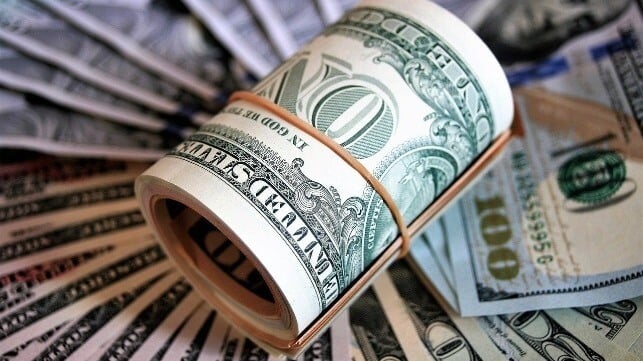Report: In Nigeria, Bribery Can Tack $150,000 Onto Cost of One Shipment

The Maritime Anti-Corruption Network (MACN) has released a comprehensive report on the cost of corrupt port practices in Nigeria, where maritime officials are notorious for bribery requests. When including the indirect cost of delays, the impact is staggering, amounting to a double-digit tax on transport and logistics expenses for imported food and bulk products - an extra expense that is ultimately passed on to Nigeria's predominantly low-income population.
According to MACN, maritime authorities in Nigeria have made progress in reducing corruption in the ports sector over the last five years, thanks in part to pressure from industry. However, bribery is still a serious problem at Nigerian ports and creates operational challenges for international shipping companies. When port officials try to extract cash from shipping companies and crews, it slows down cargo clearance, increases the cost of trade, and creates potential legal exposure for the company and crew if they agree to make a facilitation payment.
The costs add up across the entire journey of the cargo, from extra insurance premiums for the voyage to extra demurrage charges during port delays to cash payments at police checkpoints during drayage. The likelihood of a delay also forces Nigerian retailers to hold extra stock on hand so that they do not run out if their latest shipment is held in port. This increases the cost of doing business across the Nigerian economy.
Based on a business-as-usual scenario, MACN (together with consultancy QBIS) estimates that the cost of maritime corruption for bulk and food products in Nigeria comes to a total of about $160 million per year, based on a staggering $150,000-$180,000 extra cost per shipment. This represents an extra 15 percent charge on top of total transport and logistics costs for critical imports, and the cost is ultimately borne by the private sector - hiking grain and gas prices by about 1-2 percent for the average Nigerian family.
"With 63 percent of Nigerians or 133 million people classified as multidimensionally poor, most Nigerian families do not have a budget surplus," noted MACN. "Increased import costs due to corruption are therefore likely to reduce their household demand and make essential goods less affordable."
Extrapolating overall economic impact, MACN estimates that Nigeria loses $200 million per year in GDP, and has 235,000 fewer full-time jobs than it might in a scenario without bribery demands.

that matters most
Get the latest maritime news delivered to your inbox daily.
Though corruption is a persistent challenge in Nigeria, MACN believes that it can be addressed through "steadfast industry commitment and proactive government measures." The speed of resolving bribery cases has dropped to less than one day, and usually less than eight hours. The group's anti-bribery help desk is now able to resolve 98 percent of reported cases, and only has to report the remaining two percent to the authorities for resolution.
"MACN's initiative has become a transformative force in the maritime industry, setting a powerful example of how anti-corruption efforts can drive systemic change, enhance integrity in trade, and ultimately reduce the costs of doing business," the group concluded.
